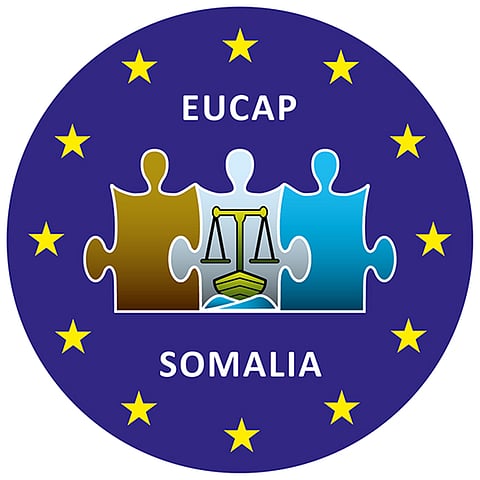Oil Spill Contingency Planning to Protect the Marine Environment
Oil spill contingency planning is the process of developing a suitable spill response capability for potential oil spills in or on water following an accidental release of oil to a marine or aquatic environment.
Somalia is vulnerable to serious marine environment pollution emanating from spills, which, though an international problem, the solution lies with enforcement of international regulations by specific countries.
On 15 and 16 February the first part of the Maritime Criminal Justice Chain Exercise (MACRILEX) 2 exercise, hosted by the Ministry of Ports and Marine Transport (MPMT), Somalia, took place with seminar on Oil Spill preparedness exercise.
Dr Mahad Mohammed Hassan, Deputy Minister of MPMT presided the event with support from Director of National Maritime Co-ordination and Blue Economy, representatives of the Somali Maritime Administration, MPMT, and Ministry of Petroleum and Mineral Resources.
Besides, dignitaries from Somali Police Force Maritime Police Unit Dept of Coast Guard, Ministry of Fisheries and Marine Resources, Ministry of Women Human Rights and Development (Representatives of the WIMS project) and Ministry of Internal Security also participated.
Hamdan bin Zayed Reviews Efforts to Rehabilitate Marine Life
The event focused on the MV Wakashio Oil Spill Event (Summer of 2020) as a reference. The existing draft of the Oil Spill Contingency Planning of the MPMT was presented to audience by the Director of Marine Environment.
Besides, presentations were made by advisors from UK and Ireland Spill Association, EMSA, IOC, IMO, Nairobi Convention Secretariat, IOPC Secretariat, UNSOM, UNEP and EUCAP.
Special comments were made towards the accession of Somalia to the different international treaties relevant on the matter and the compensation schemes existing. The possible criminal consequences and seafarer’s rights protection required in such events was also discussed.
Recommendations agreed by the Somali stakeholders, among other, included the establishment of a Working Group on Oil Spill Contingency Planning including Federal Member States.
All documentation and presentations are to be shared among the participants, in order to achieve a comprehensive and workable contingency plan in order to prevent and better confront possible oil spill vents in Somalia.
EUCAP will continue collaborating with Somalia’s relevant authorities and counterparts to help the Ministry of Ports and Marine Transport (MPMT) improve its existing oil spill contingency planning to and efficiently respond to oil spills in accordance with international regulatory standards.
Read More: Importance of Marine Life Conservation Highlighted During Shark Week


